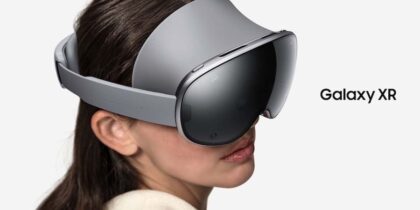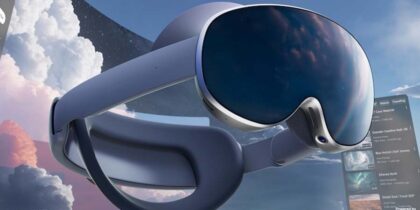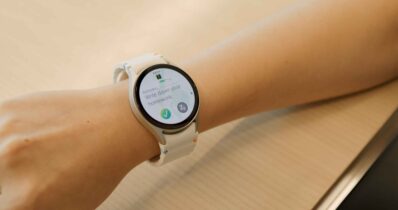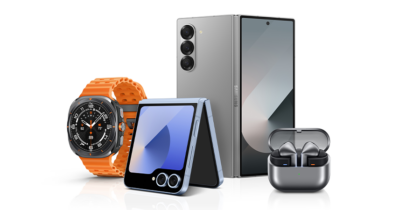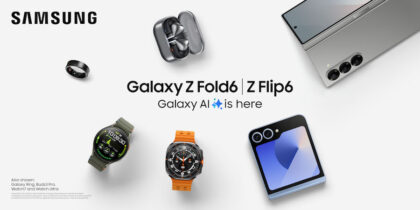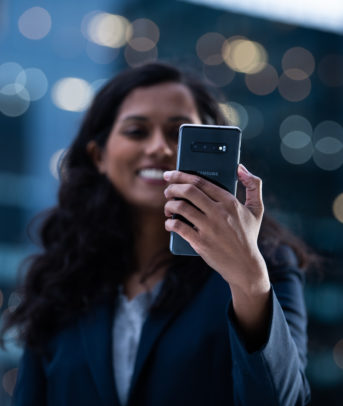The America Insomnia Survey says that sleeplessness is associated with 7.2 percent of all costly workplace accidents and errors, resulting in a combined annual cost of $31.1 billion dollars. It’s a widespread phenomenon.
When people talk about “fatigue at work,” they tend to underrate the problem. It sounds like the kind of 2 o’clock drowsiness that sends folk scuttling for one more latte to make it through the day.
But there’s another kind of fatigue that’s much more serious. In some industries, long shifts, physically demanding work and a chronic lack of sleep combine to erode productivity. In these cases, fatigue may to lead to injury, or even death.
Ability Wearables, a wearable data startup based in New York City, has joined with Samsung to bring a new fatigue management solution to the table. Ability uses sophisticated analytics to power the next generation of Samsung smartwatches for the enterprise market. Together the companies will offer a suite of health and safety software and apps on Samsung Gear smartwatches to help a broad range of industries reduce health risks, injuries and fatalities in the workplace.
The Workplace Epidemic
Fatigue has largely escaped media attention, but it’s a workplace epidemic of great severity. According to Ability’s research, 60 percent of heavy equipment accidents are fatigue-related. Additionally, employees who sleep less than four hours are four to five times as likely to be in a crash. You wouldn’t want employees drinking on the job — yet being awake 18 hours is equivalent to a blood-alcohol concentration of 0.05, in terms of fatigue. After 24 hours the impairment level is 0.10, equivalent to being legally drunk.
Wearables Are Taking the Mobile Enterprise Further
Download this white paper to learn how to secure and manage wearables for your workplace. Download Now
While the figures are startling, Ability sees the people behind the numbers. Employees are a business’s most valuable asset. In seeking a solution to fatigue at work, Ability’s mission is to keep people out of harm’s way by monitoring and predicting risk.
How It Works
Ability is led by CEO Shiv Madan, previously a publicly listed energy company CEO and eBay executive, and Nathan Klarer, COO, a biomedical engineer and med-tech startup founder. The company’s solution tracks critical user biometric data using Samsung Gear Fit2 smartwatches for improved fatigue management. “We like to think of ourselves as a company that adds an intelligence layer on top of wearable sensors, with the objective of delivering health, safety and productivity intelligence to enterprises,” Madan said.
Ability’s solution taps into GearUP, Samsung’s wearable API services marketplace, which allows developers to access real-time employee health intelligence, assess safety through geofencing and drive greater productivity through notifications-based tasks and hands-free calling.
Data goes to the cloud, synchronizing automatically with Ability’s secure data analytics platform. Analytics help to identify at-risk employees before the start of the shift, allowing the employer to keep high-risk workers off of roads, equipment and project sites. Health, safety and productivity intelligence are automatically delivered to desktops and mobile devices.
Ability draws upon years of scientifically-validated research to deliver complex algorithms tracking human fatigue factors with over 90 percent accuracy. Metrics have been validated through years of field testing, including work with Barrick Gold, a global mining company. Ability brings to the table one of the world’s largest databases of biometric wearable data: over 1 billion sample points and 300,000 hours of field data.
The research team has observed micro-sleep events of truck drivers and equipment operators and has weighed this information against biometric data captured from smartwatches. Algorithms fine-tune the correlations using four variables: Sleep/Awake, Interruptions, Toss/Turns and Heart Rate. These variables help to serve as predictors of fatigue for any given shift.
Business Benefits
Biometric analytics, delivered via smartwatch, could have a direct impact on the enterprise bottom line.
“Samsung and Ability’s wearable solutions will help improve user health and safety by addressing fatigue-related issues which cost employers over $120 billion per year in health-related claims and lost productivity,” said Nitesh Jain, head of digital health and wearable services, services and new business team at Samsung Electronics America. “It’s a smart service-led wearable solution that makes great use of the GearUP API marketplace.”
The solution may be applied across a broad range of industries where workers log long shifts or engage in physically demanding tasks. Healthcare workers, manufacturing employees and public safety staff all stand to benefit from the close tracking and analysis of fatigue data made possible by wearable technology. Airline employees, truckers and those in the natural resources industries likely could also see a benefit from the technology.
By using smartwatches to track critical user biometric data in real time, Ability’s cloud software platform makes it possible to categorize fatigue risk before the shift. This gives managers the ability to arrange schedules and make other changes to enhance safety and productivity.
Discover more ways that wearables are revolutionizing the way we work and increasing productivity.


